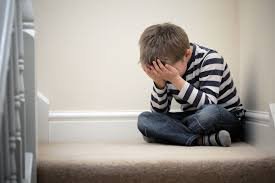Handling depression in kids

Depression is a serious mental health condition that can have a profound impact on children and adolescents. While it is commonly associated with adulthood, depression can occur at any age and is not uncommon among children and teens. Understanding how to recognize the signs of depression in kids and knowing how to help can make a significant difference in their lives.
The first step in handling depression in kids is to understand the signs and symptoms. Some common indicators of depression in children include a persistent sad mood, a loss of interest in previously enjoyed activities, changes in appetite and sleep patterns, irritability, and fatigue. Children with depression may also experience feelings of hopelessness, guilt, or worthlessness and may have difficulty concentrating or making decisions.
If you suspect that your child may be suffering from depression, it is important to seek professional help. A mental health professional such as a psychologist or psychiatrist can diagnose and treat depression in children. They can also provide support and guidance to help your child cope with the symptoms and regain control of their life.
In addition to seeking professional help, there are several other things that you can do to help your child manage their depression. Encouraging them to engage in physical activity and exercise can help improve their mood and energy levels. Encouraging them to participate in activities that they enjoy, such as playing sports or doing arts and crafts, can also help them feel better.
It is also important to be a supportive and understanding listener for your child. Let them know that you are there for them and that you care about their feelings. Encouraging them to talk about their feelings and thoughts can help them feel less alone and more in control.
In addition to these strategies, there are also steps that you can take to create a supportive environment for your child at home. This includes creating a routine and structure for their day, providing a stable and predictable home life, and promoting healthy sleep habits.
It is also important to be aware of the potential triggers for your child's depression and to try to minimize their exposure to these triggers. This may include avoiding stressful situations, reducing screen time, and limiting their exposure to negative news or social media.
Finally, it is essential to be patient and persistent in your efforts to help your child manage their depression. Depression is a treatable condition, but it may take time and patience to see improvement. Encourage your child to stick with their treatment plan, even if they don't see immediate results, and be there to support them every step of the way.
Handling depression in kids requires a combination of professional help, lifestyle changes, and support from family and loved ones. By understanding the signs of depression and taking a proactive approach to help, you can make a significant difference in your child's life and help them overcome this challenging condition.